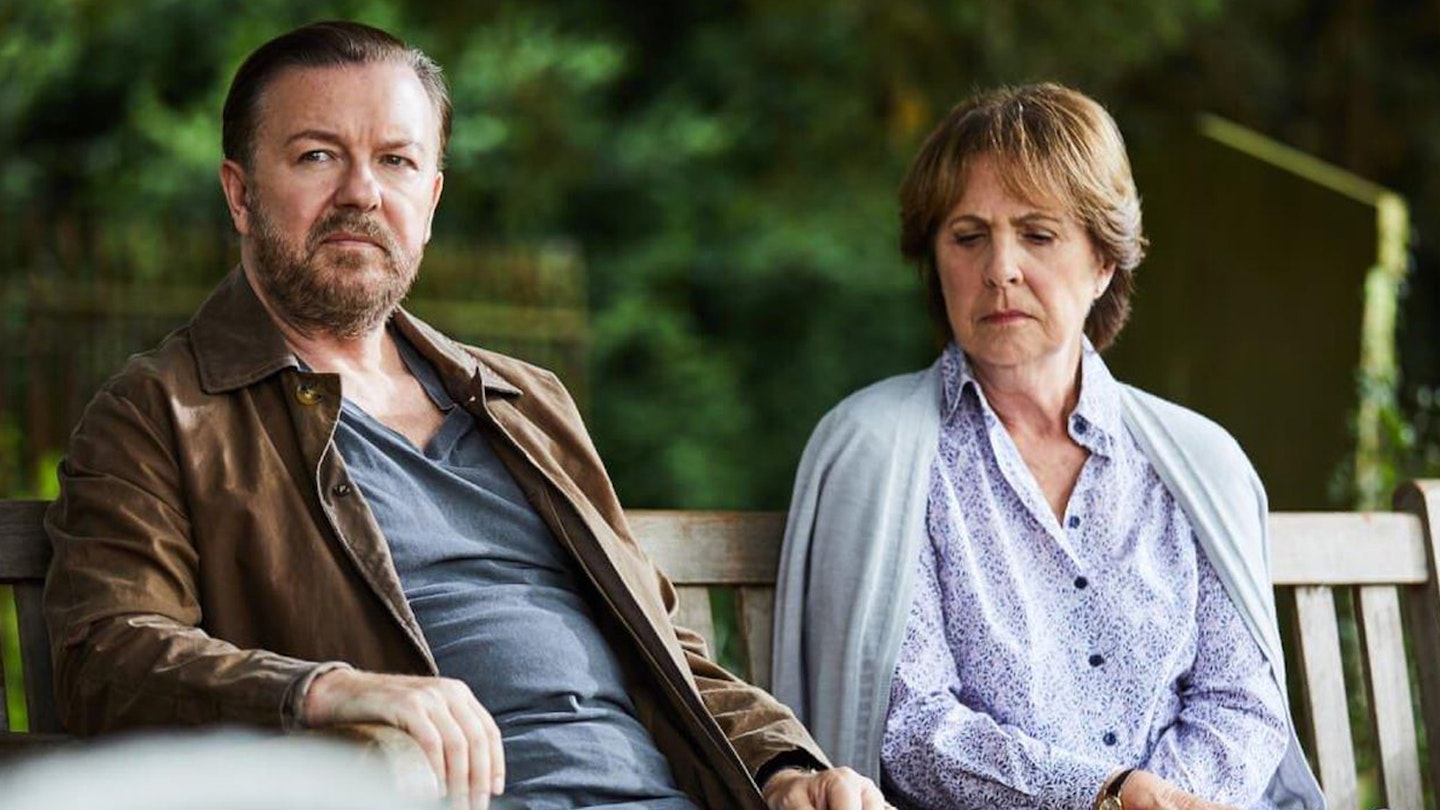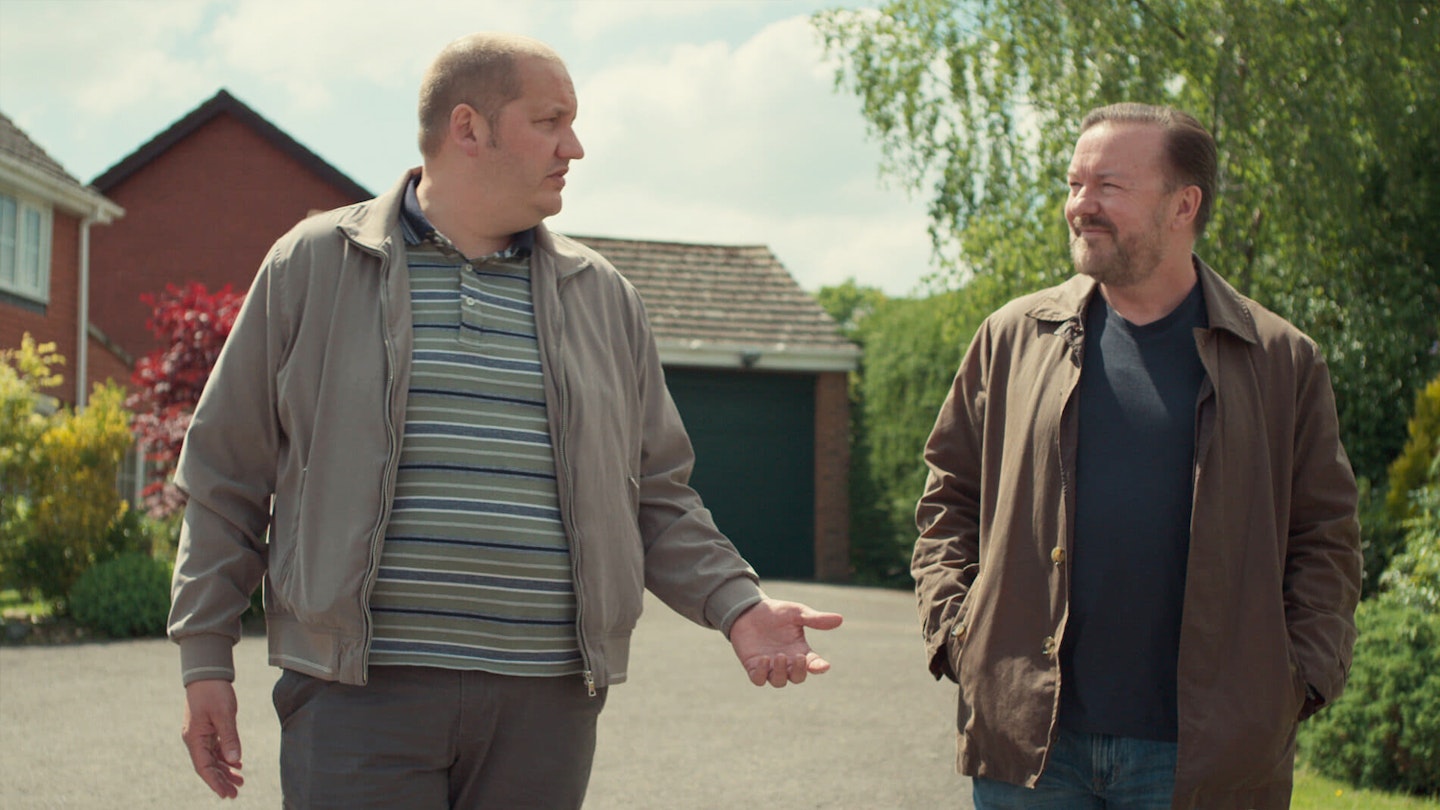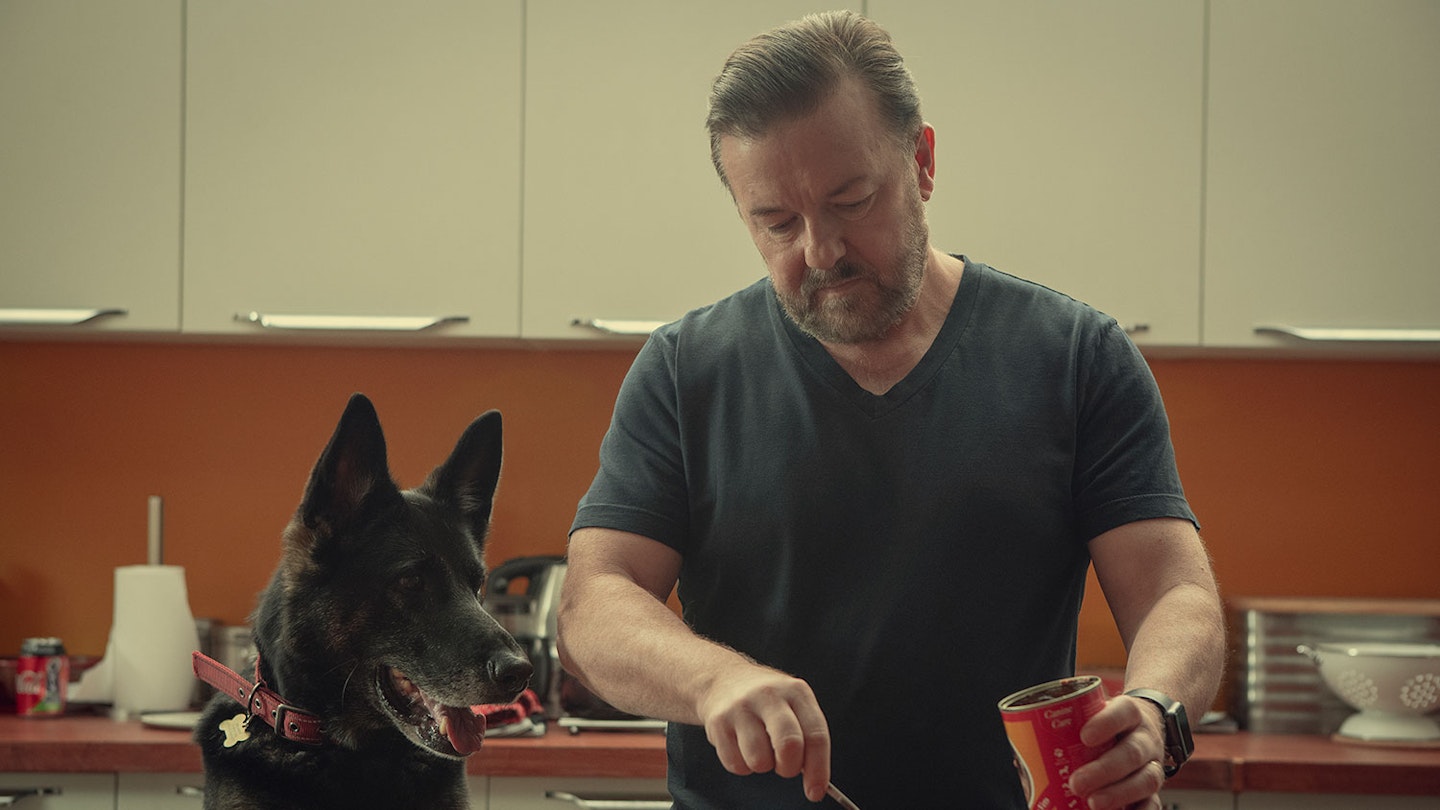After Life has some of the flavours of everything Ricky Gervais has ever done, from his TV sitcoms to his stand-up shows and even some rants from one of his massively popular podcasts, but the way they’re mixed together, in a story with real dramatic heft, makes it feel entirely different and original.
He plays Tony, a local journalist who’s not the slightest bit interested in the locals or journalism, and his performance has an unflashy, downbeat realism to it, even when he’s being really funny. Tony’s way of dealing with his grief, or rather not dealing with it, is by being serenely mean to almost everyone, including himself. His relentless mockery is cleverly scripted by Gervais so that while we’re laughing at Tony’s brutal, socially inappropriate honesty, we’re also keenly aware of the pain at the heart of his barbs.
The show’s intriguing structure is built round Tony’s encounters with the disparate people he meets every day, and the myriad ways they irritate him. There’s the postman (Joe Wilkinson) who just wants to hand Tony his mail rather than put it through the letter box, the work colleague (played by Diane Morgan, of Philomena Cunk fame) who goes on about Kevin Hart all the time, and Tony’s own father (David Bradley), living in a care home, who still thinks Tony’s beloved wife is still alive.
It’s an extraordinary ensemble, also featuring wonderful, raw naturalism from Penelope Wilton, Ashley Jensen and Roisin Conaty. If the rule of Seinfeld, one of Gervais’s favourites, was ‘no growing, no hugging’, After Life somehow stays sharp even while the characters are learning big life lessons. And actually hugging.







